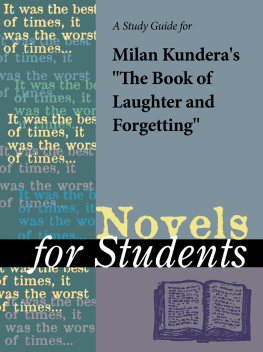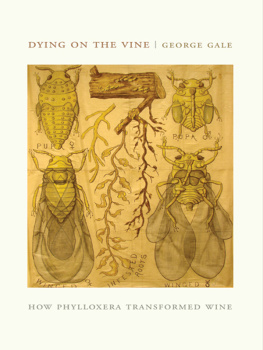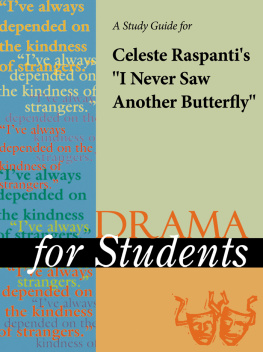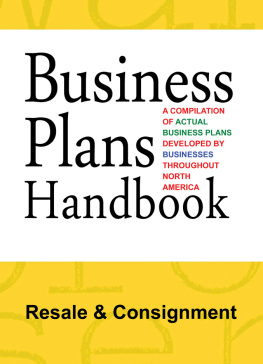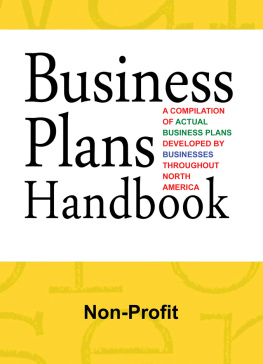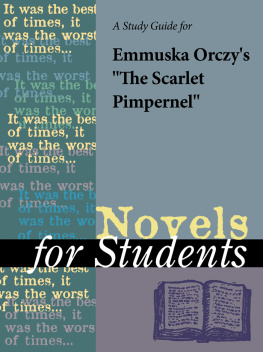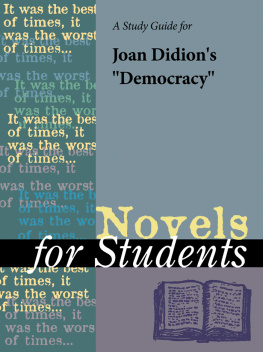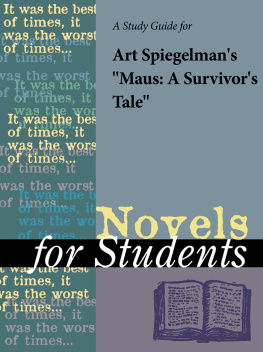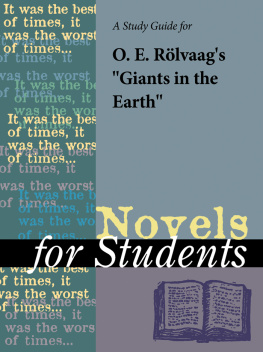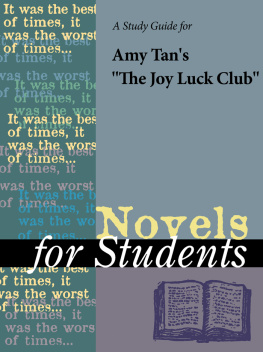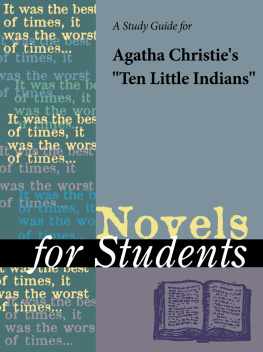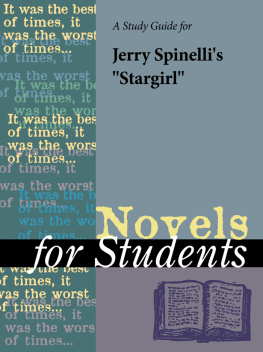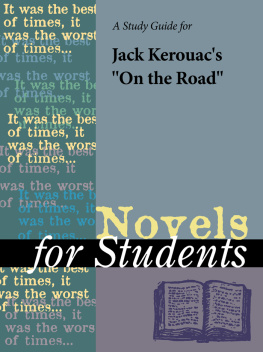TABLE OF CONTENTS
Guide
Novels for Students, Volume 27
Project Editor: Ira Mark Milne
Rights Acquisition and Management: Vernon English, Leitha Etheridge-Sims, Aja Perales, Sue Rudolph
Composition: Evi Abou-El-Seoud
Manufacturing: Drew Kalasky
Imaging: Lezlie Light
Product Design: Pamela A. E. Galbreath, Jennifer Wahi
Content Conversion: Civie Green, Katrina Coach
Product Manager: Meggin Condino
2008 Gale, Cengage Learning
ALL RIGHTS RESERVED. No part of this work covered by the copyright herein may be reproduced, transmitted, stored, or used in any form or by any means graphic, electronic, or mechanical, including but not limited to photocopying, recording, scanning, digitizing, taping, Web distribution, information networks, or information storage and retrieval systems, except as permitted under Section 107 or 108 of the 1976 United States Copyright Act, without the prior written permission of the publisher.
Since this page cannot legibly accommodate all copyright notices, the acknowledgments constitute an extension of the copyright notice.
For product information and technology assistance, contact us at Gale Customer Support, 1-800-877-4253.
For permission to use material from this text or product, submit all requests online at www.cengage.com/permissions.
Further permissions questions can be emailed to permissionrequest@cengage.com
While every effort has been made to ensure the reliability of the information presented in this publication, Gale, a part of Cengage Learning, does not guarantee the accuracy of the data contained herein. Gale accepts no payment for listing; and inclusion in the publication of any organization, agency, institution, publication, service, or individual does not imply endorsement of the editors or publisher. Errors brought to the attention of the publisher and verified to the satisfaction of the publisher will be corrected in future editions.
Gale
27500 Drake Rd.
Farmington Hills, MI, 48331-3535
ISBN-13: 978-0-7876-8684-0
ISBN-10: 0-7876-8684-0
ISSN 1094-3552
This title is also available as an e-book.
ISBN-13: 978-1-4144-3831-3
ISBN-10: 1-4144-3831-1
Contact your Gale, a part of Cengage Learning sales representative for ordering information.
Printed in the United States of America
1 2 3 4 5 6 7 12 11 10 09 08
The Book of Laughter and Forgetting
Milan Kundera
1979
Introduction
In 1978, while exiled in France, the Czechoslovakian writer Milan Kundera wrote a novel destined to become an international success. Forbidden to be published in his homeland, Kundera's The Book of Laughter and Forgetting was written in Czech but first published in French as Le livre du rire et de l'oublie in 1979. It was subsequently translated into English and published in the United States in 1980.
Although the book is generally classified as a novel, it does not have the traditional structure of beginning, middle, and end. Rather, the seven parts of the book have individual characters and different plot lines. Yet The Book of Laughter and Forgetting is more than a collection of connected short stories. Indeed, the separate sections do not even correspond to the traditional notions regarding short stories. Rather, they are snippets of a story interspersed with historical commentary interspersed with philosophical meditation interspersed with autobiographical detail. What holds the entire work together is the compellingly controlled voice of the narrator, a voice that remains consistent throughout the text. This voice, Kundera himself (or a character playing the part of "Milan Kundera"), gradually reveals to the reader the themes and variations that comprise the novel.
The historical context of The Book of Laughter and Forgetting is important for any reader approaching the text. From an exile's perspective, Kundera writes of his nation's descent from a republic to a Communist dictatorship, its brief resurgence as an open society during the Prague Spring of 1968, and the country's return to a totalitarian police state, after Soviet tanks rolled into Prague in August 1968, reestablishing Czechoslovakia as a Communist Eastern-bloc nation.
The Book of Laughter and Forgetting explores the ways that governments and people both create and extinguish memories, how laughter can be both angelic and demonic, and what is required to remain human in the face of crushingly dehumanizing circumstances.
A recent edition of the novel, translated from French by Aaron Asher, was published by Perennial Classics in 1996.
Author Biography
Milan Kundera was born on April 1, 1929, in Brno, Czechoslovakia (now the Czech Republic). His parents were Ludvik and Milada Kunderov. His father was a well-known musician who studied with the famous Czech composer, Leos Jancek. Indeed, his father's musical influence can be seen in many of Kundera's later works.
In 1948, Kundera completed secondary school and enrolled in Charles University in Prague. He began his studies in literature, later changing his emphasis to film and directing. He joined the Communist Party in 1948 as an idealistic youth; he quickly became disillusioned, however, as the Party quickly established a police state. An outspoken critic of the Party, he was expelled in 1950. Kundera joined the faculty of the Film Academy in 1952.
Kundera published his first collection of poems in 1953, while working as a translator and playwright. By 1956, Kundera was readmitted to the Communist Party. By this time, he had become a well-known literary celebrity in Czechoslovakia. In 1960, he wrote Umen romu: Cesta Vladislava Vancury za velkou epikou (The Art of the Novel: Vladislav Vancura's Journey tothe Great Epic, 1960) The book was a work of Marxist criticism, a type of criticism that considers class, economics, and the flow of power in a culture; it was well received by Czechoslovakian critics and scholars, although Kundera later renounced the work. In 1988, however, he wrote a different book under the same title.
Kundera began writing his first novel, Zert, in 1962, although it was not published in Czechoslovakia until 1967 due to censorship. The book is a satire of totalitarianism in Czechoslovakia, and was first published in English as The Joke in 1969.
In 1968, for a brief period, restrictions on writers and artists lifted slightly in what became known as the "Prague Spring." The Soviet Union, however, was fearful that the freedom enjoyed by the Czech people could spill over into a revolution throughout the nearby Communist bloc countries. In August, 1968, Soviet tanks entered Prague, and a new repressive government was installed by the Soviets; this government ruled Czechoslovakia for twenty-one years. As a leader of the Prague Spring movement, Kundera found himself blacklisted: he could not publish any writing in Czechoslovakia and he lost his job at the university.
In 1975, Kundera received permission from the government to move to France. There he began The Book of Laughter and Forgetting, his most important work to date. Written first in Czech, the novel was then translated into French as Le livre du rire et de l'oublie

